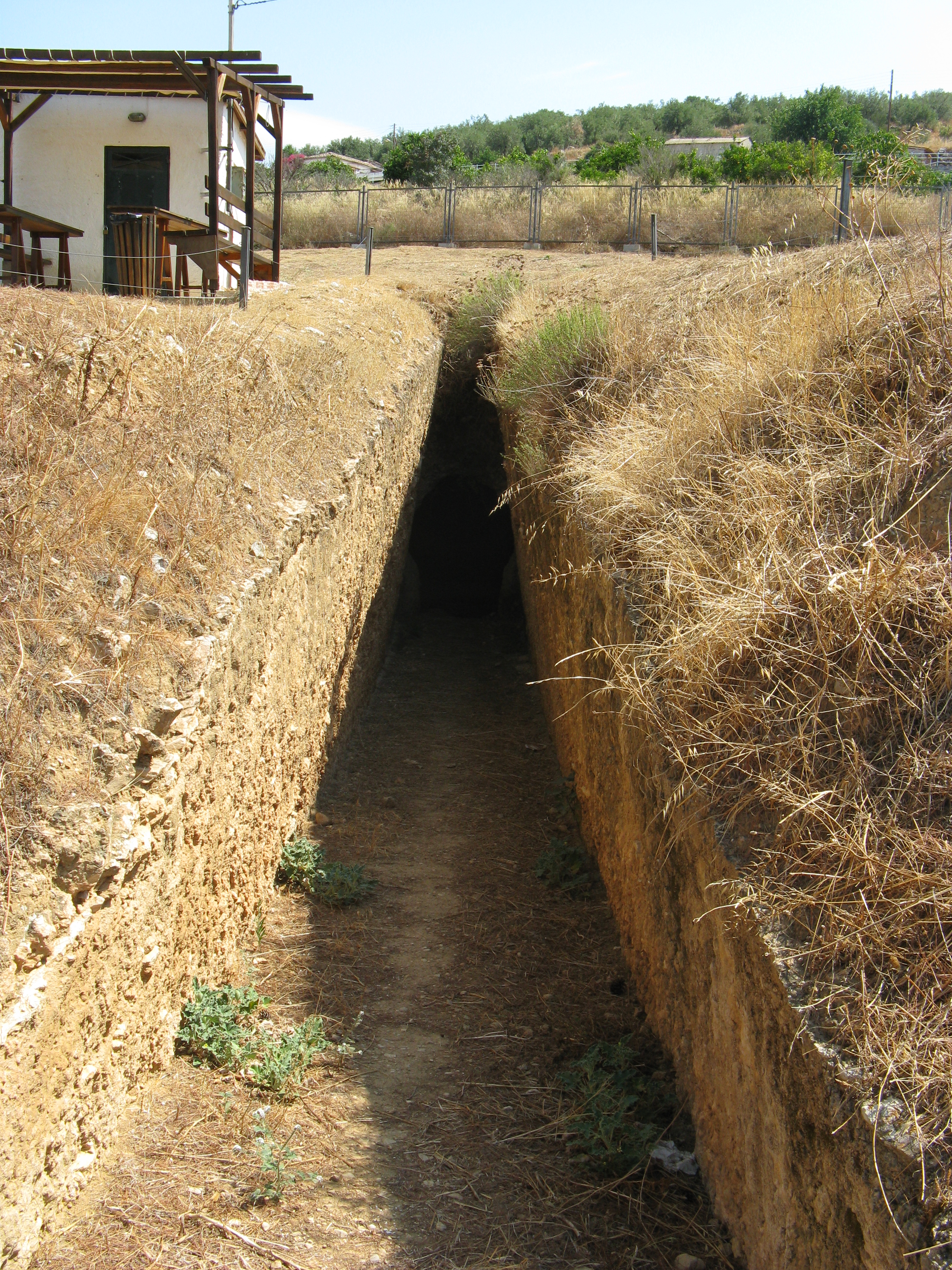Dendra on:
[Wikipedia]
[Google]
[Amazon]
Dendra ( el, Δενδρά) is a  Subsequent excavations (following partly successful attempts to plunder the unexcavated tombs) unearthed the unique and exquisite Dendra panoply of bronze armour, currently exhibited at the
Subsequent excavations (following partly successful attempts to plunder the unexcavated tombs) unearthed the unique and exquisite Dendra panoply of bronze armour, currently exhibited at the
prehistoric
Prehistory, also known as pre-literary history, is the period of human history between the use of the first stone tools by hominins 3.3 million years ago and the beginning of recorded history with the invention of writing systems. The us ...
archaeological
Archaeology or archeology is the scientific study of human activity through the recovery and analysis of material culture. The archaeological record consists of artifacts, architecture, biofacts or ecofacts, sites, and cultural landscap ...
site situated outside the village with the same name belonging to the municipality of Midea in the Argolid, Greece
Greece,, or , romanized: ', officially the Hellenic Republic, is a country in Southeast Europe. It is situated on the southern tip of the Balkans, and is located at the crossroads of Europe, Asia, and Africa. Greece shares land borders wi ...
.
The site has a history stretching back at least to the early Bronze Age
The Bronze Age is a historic period, lasting approximately from 3300 BC to 1200 BC, characterized by the use of bronze, the presence of writing in some areas, and other early features of urban civilization. The Bronze Age is the second pri ...
and is significant for the Bronze Age cemetery
A cemetery, burial ground, gravesite or graveyard is a place where the remains of dead people are buried or otherwise interred. The word ''cemetery'' (from Greek , "sleeping place") implies that the land is specifically designated as a bu ...
excavated by Swedish archaeologist Axel W. Persson
Axel Waldemar Persson (1 June 1888 – 7 May 1951) was a Sweden, Swedish archaeologist.
He was professor of classical archaeology and ancient history at Uppsala University and conducted excavations of sites in Greece and in Asia Minor.
...
in the first half of the 20th century. Persson excavated an unplundered tholos tomb and many Mycenaean chamber tombs, presumably belonging to the ruling classes having their dwelling at the nearby citadel
A citadel is the core fortified area of a town or city. It may be a castle, fortress, or fortified center. The term is a diminutive of "city", meaning "little city", because it is a smaller part of the city of which it is the defensive core.
In ...
of Midea.
Archaeological Museum
An archaeology museum is a museum that specializes in the display of archaeological
Types
Many archaeology museum are in the open air, such as the Ancient Agora of Athens and the Roman Forum. Others display artifacts inside buildings, such as ...
in nearby Nafplio
Nafplio ( ell, Ναύπλιο) is a coastal city located in the Peloponnese in Greece and it is the capital of the regional unit of Argolis and an important touristic destination. Founded in antiquity, the city became an important seaport in th ...
. Later excavations also brought to light Bronze Age tumulus
A tumulus (plural tumuli) is a mound of earth and stones raised over a grave or graves. Tumuli are also known as barrows, burial mounds or '' kurgans'', and may be found throughout much of the world. A cairn, which is a mound of stones ...
burials which included sacrificed horse
The horse (''Equus ferus caballus'') is a domesticated, one-toed, hoofed mammal. It belongs to the taxonomic family Equidae and is one of two extant subspecies of ''Equus ferus''. The horse has evolved over the past 45 to 55 million yea ...
s.
See also
*Swedish Institute at Athens
The Swedish Institute at Athens ( sv, Svenska institutet I Athen; el, Σουηδικό Ινστιτούτο Αθηνών) was founded in 1946 and is one of 19 foreign archaeological institutes operating in Athens, Greece. The Institute is one of ...
Sources
*P. Mack Crew, J.B. Bury, I.E.S. Edwards, C.J. Gadd, John Boardman, and N.G.L. Hammond. ''The Cambridge Ancient History: c. 1800 – 1380 B.C'' Vol. II, pt. 2: ''c. 1380 – 1000 B.C.'' (Cambridge University Press), 1975. *Swedish Institute at Athens - Dendra, Argolid: https://www.sia.gr/en/articles.php?tid=330&page=1External links
Swedish Institute at Athens article about Dendra, Argolid - https://www.sia.gr/en/articles.php?tid=330&page=1